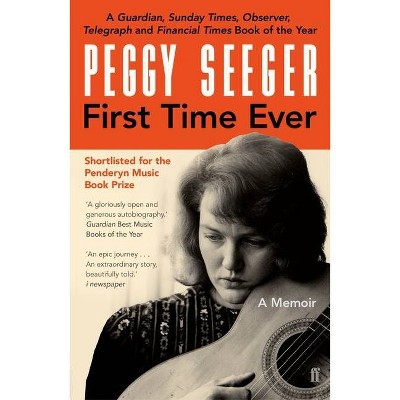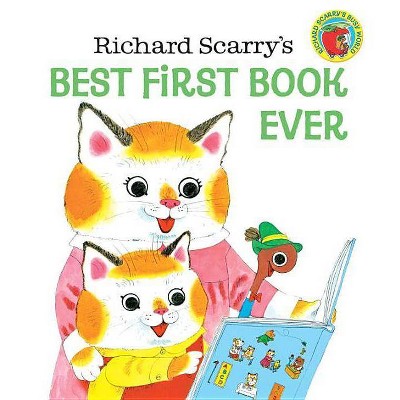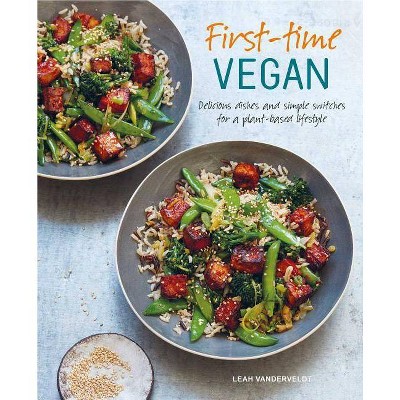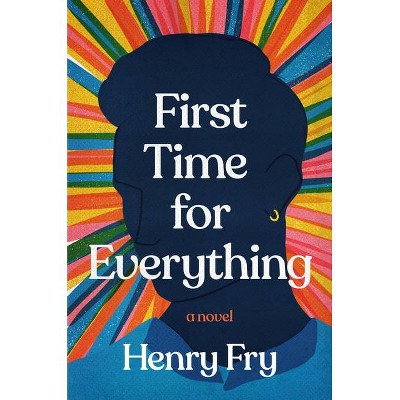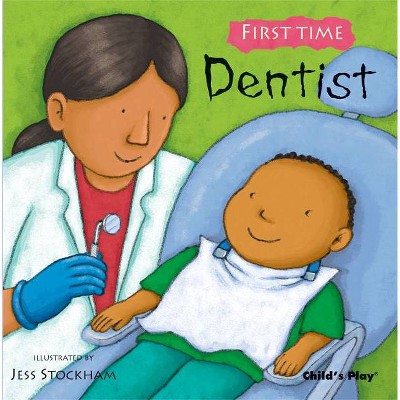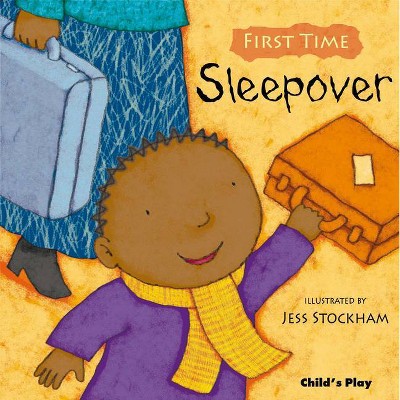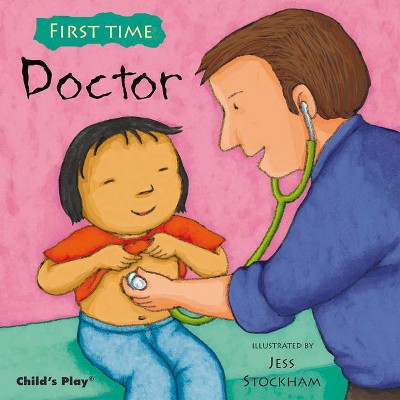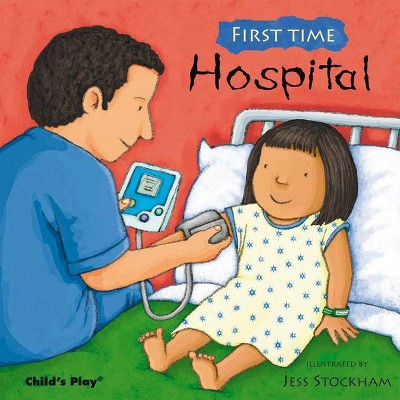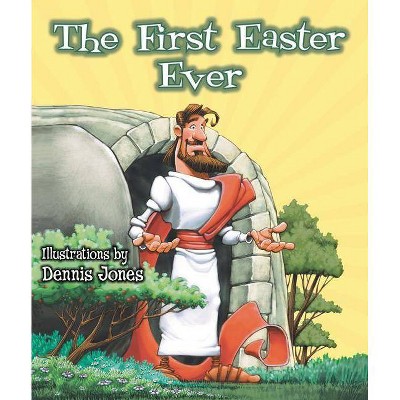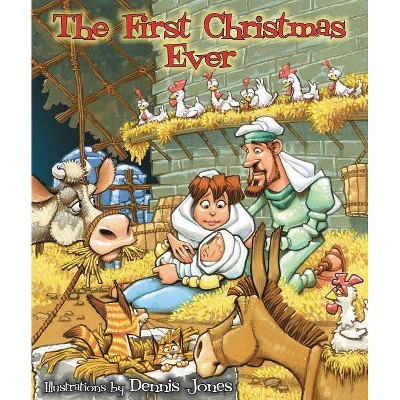First Time Ever - (Hardcover)
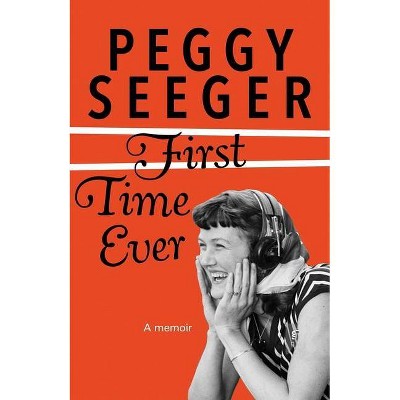
Similar Products
Products of same category from the store
AllProduct info
<p/><br></br><p><b> About the Book </b></p></br></br><b>A beautifully realized memoir by one of folk music's most recognizable and influential artists</b><p/><br></br><p><b> Book Synopsis </b></p></br></br><b>A quirky, unique, and fabulously memorable memoir.--STARRED <i>Kirkus Reviews</i></b><br> <b>Like the singer herself, Seeger's prose is fluid and sharp, intimate yet measured. In a memoir profuse with exacting detail, Seeger recalls the heady days when folk music ruled and shares the innermost doubts and delights of a woman who never shied away from life or love."<i>--Booklist</i></b><br> <b>Musicians are often good storytellers; <i>First Time Ever</i> shows that Peggy Seeger is also a good writer. Bursting with lyrics, footnotes, photos and fine turns of phrase, <i>First Time Ever</i> is a feast.<i>--Shelf Awareness</i></b><br> Peggy Seeger is one of folk music's most influential artists and songwriters. Born in New York City in 1935, she enjoyed a childhood steeped in music and left-wing politics - they remain her lifeblood. After college, she traveled to Russia and China - against US advice - before arriving in London, where she met the man with whom she would raise three children and share the next thirty-three years: Ewan MacColl. Together, they helped lay the foundations of the British folk revival, through the influential Critics Group and the landmark BBC Radio Ballads series. And as Ewan's muse, she inspired one of the twentieth century's most popular love songs, The First Time Ever I Saw Your Face. <p/>With a clear eye and generous spirit, Peggy writes of a roller-coaster life - of birth and abortion, sex and infidelity, devotion and betrayal - in a luminous, beautifully realized account.<p/><br></br><p><b> Review Quotes </b></p></br></br><br>A British-American musician reflects on her long life and colorful career as a folk singer.Seeger (b. 1935) grew up in a musically gifted family of left-wingers. Her father was a musicologist who regularly consorted with the likes of Alan Lomax and Lead Belly; her mother was a music teacher, composer, and Guggenheim Fellowship recipient; and her half brother, Pete, was a highly regarded folk singer and social activist. As middle class as her upbringing was, the author also remembers it as strangely free--few dos and fewer don'ts. A lively teenager who played numerous instruments including the banjo, Seeger attended, but did not graduate from, Radcliffe College. While a student in Boston, she took part in the emerging folk music scene. In 1955, she left to live in the Netherlands. A phone call from Alan Lomax in England brought her to London in 1956, where she immersed herself in the burgeoning folk music scene of which Lomax was part. Almost immediately, she met and began an affair with English musician Ewan MacColl, who was 20 years older and married. Together, they formed an unconventional, peripatetic union that produced three children; seminal documentary collaborations with the BBC called the Radio Ballads; the Critics Group, a master class for young singers interested in learning the art of folk music; and numerous albums now considered classics of the folk genre. Their intense, sometimes-difficult personal relationship also inspired MacColl to write The First Time Ever I Saw Your Face, a song made famous in the early 1970s by Roberta Flack. Spanning the U.S., Europe, Asia, and a personal evolution toward feminism and bisexuality, this free-spirited recollection of eight decades steeped in joy, sorrow, and harrowing tragedy celebrates Seeger's experiences while reveling in the free-spirited Of-Course-Why-Not philosophy that has governed her life. It's a remarkable life story well told. A quirky, unique, and fabulously memorable memoir. <b>--STARRED <i>Kirkus Reviews</i></b><br><br>Musicians are often good storytellers; <i>First Time Ever</i> shows that Peggy Seeger is also a good writer. She was raised in Maryland by progressive parents who hosted the likes of Lead Belly and Jackson Pollock. Adept at guitar and banjo, Seeger recorded her first album in 1954, while a student at Radcliffe. Two years later, the legendary American ethnomusicologist Alan Lomax summoned her to London: he wanted her for an English version of the Weavers--an obvious recruit, given that her much-older half brother was Pete Seeger. The gig fizzled, but she met my next thirty-three years--the English singer-songwriter Ewan MacColl, two decades her senior. MacColl was married when Seeger conceived their first child, and he conceived another with his wife shortly thereafter. While Seeger's judgment throughout her book can irk, readers will root for her, including when she starts life over with a female partner after MacColl's 1989 death. <i>First Time Ever </i>offers a catbird seat overlooking a long marriage of wandering minstrels who were catalysts for the British folk revival. When MacColl first heard Roberta Flack's 1972 Grammy-winning version of The First Time Ever I Saw Your Face, which he had written years earlier for Seeger to sing, he was stunned. Ewan said he wrote it as an hors d'oeuvre, writes Seeger, and it had been turned into the main course. Bursting with lyrics, footnotes, photos and fine turns of phrase, <i>First Time Ever</i> is a feast. <b><i>The author, half-sister to folk singer Pete Seeger, is a force of folk all her own. In this lovely firsthand account, Seeger shares memories of her idyllic childhood and reflections on race, as her family employed African American domestic workers. She also explores cultural differences as she looks back on her travels through Europe and Asia as a young woman playing music; she delves into her identity as both a public performer and a woman, daughter, partner, mother, musician, activist, and feminist, crafting the narrative from recollections and her own diaries. Readers will find a constellation of folk music greats here, all linked by Seeger's anecdotes. Now in her 80s, Seeger is enmeshed thoroughly in the search to know herself fully. One delightful aspect is Seeger quoting from biographies of her life, written by others. The chronological structure zigzags a bit in time, but it mimics the way memory works. VERDICT An engrossing read for all, even those who don't know their folk music history. (Memoir, 12/13/17)--Shelf Awareness</b></i><br><br>The author, half-sister to folk singer Pete Seeger, is a force of folk all her own. In this lovely firsthand account, Seeger shares memories of her idyllic childhood and reflections on race, as her family employed African American domestic workers. She also explores cultural differences as she looks back on her travels through Europe and Asia as a young woman playing music; she delves into her identity as both a public performer and a woman, daughter, partner, mother, musician, activist, and feminist, crafting the narrative from recollections and her own diaries. Readers will find a constellation of folk music greats here, all linked by Seeger's anecdotes. Now in her 80s, Seeger is enmeshed thoroughly in the search to know herself fully. One delightful aspect is Seeger quoting from biographies of her life, written by others. The chronological structure zigzags a bit in time, but it mimics the way memory works. VERDICT An engrossing read for all, even those who don't know their folk music history.--<i>STARRED Library Journal</i><br><br>The sister of Pete Seeger, the muse of English folksinger, activist, and writer Ewan MacColl, Peggy Seeger is also a force to be reckoned with in her own right. Headstrong and determined, curious and adroit, Seeger has been the perfect vessel for sharing and keeping vital the vast catalog of folk music indigenous to various cultures. Her peripatetic life took her from the home of her famed musical family in America around the globe, singing and studying her way through Holland, Russia, Germany, and China, ultimately settling in Britain. Meeting MacColl there would be a life-changing event, setting in motion a great, but complicated, love story, one that grew even thornier when Seeger fell in love with fellow folksinger Irene Pyper-Scott. Like the singer herself, Seeger's prose is fluid and sharp, intimate yet measured. In a memoir profuse with exacting detail, Seeger recalls the heady days when folk music ruled and shares the innermost doubts and delights of a woman who never shied away from life or love.<br> <b><i>--Booklist </b></i><br><br>This whirling memoir follows the folksinger and activist through international tours, crises in her famous musical family, and a long, all-consuming relationship with the British singer Ewan MacColl. Seeger's conversational prose has a flair for capturing the common (a 1938 Chevy 'had a vertical fish-mouth and a fat lady's rump') and the cataclysmic; remembering her mother's early death, she writes, 'I try to see and hear things for her, to lure her spirit back from the lost body.' Colorful characters flit in and out, and, remembering them, Seeger, who is now eighty-two, is often wistful. Of one friend, she writes, 'He died, but he is still in my present tense.'--<i>New Yorker</i><br><p/><br></br><p><b> About the Author </b></p></br></br><b>Peggy Seeger</b> is a singer of traditional Anglo-American songs and activist songwriter, with 200 songs under her belt, one a major anthem of the women's movement. She is a multi-instrumentalist - playing piano, guitar, 5-string banjo, Appalachian dulcimer, autoharp and English concertina - has recorded 23 solo albums, and has contributed to more than 100 others. In 2014, she was awarded the inaugural Women in Music Award for Creative Inspiration, and in 2015 she and her son Calum won Best Original Song at the BBC Radio 2 Folk Awards. She has an Honorary Doctorate in Art from the University of Salford and lives in Oxford.
Price History
Price Archive shows prices from various stores, lets you see history and find the cheapest. There is no actual sale on the website. For all support, inquiry and suggestion messages communication@pricearchive.us
